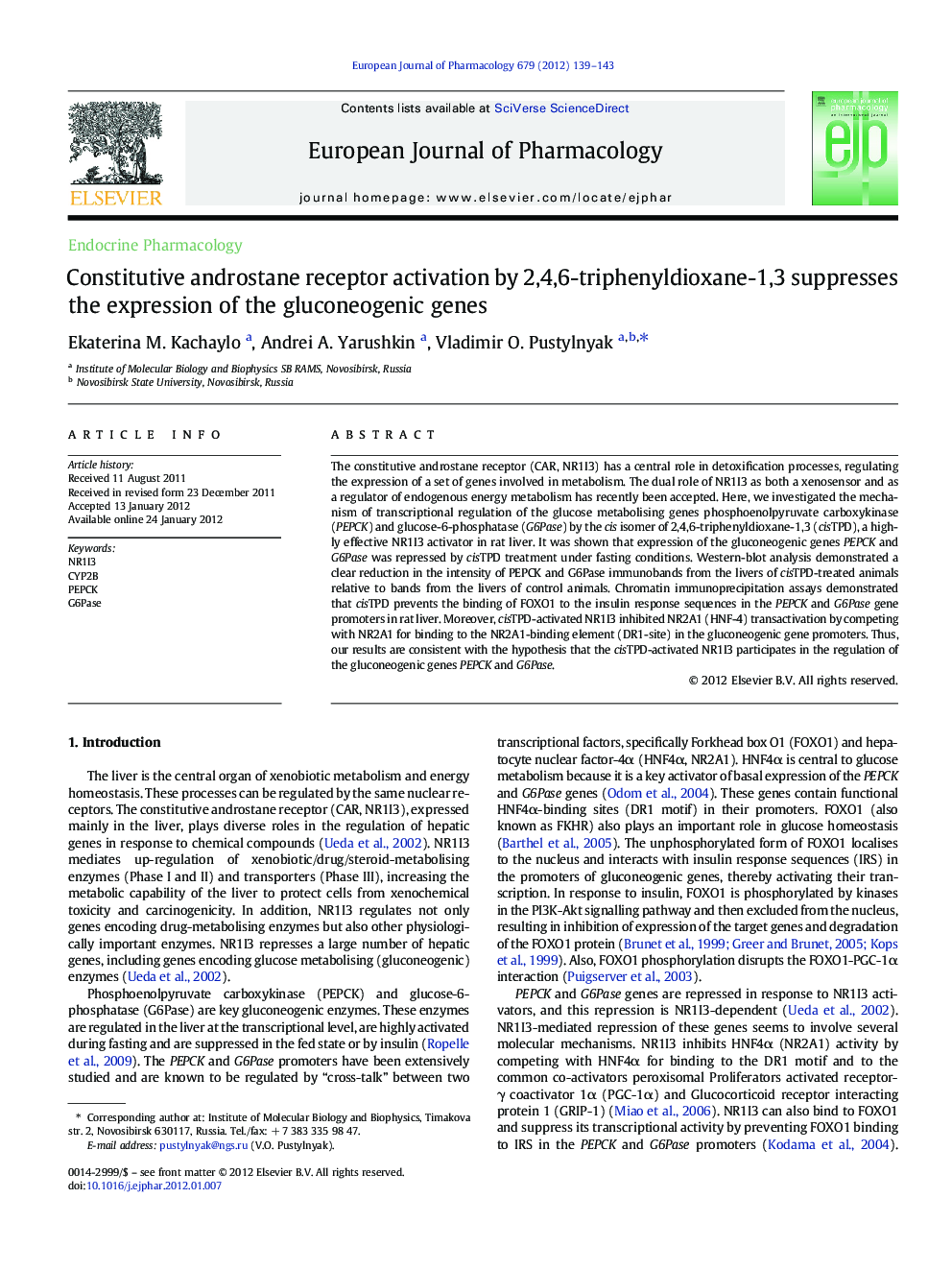| Article ID | Journal | Published Year | Pages | File Type |
|---|---|---|---|---|
| 5829778 | European Journal of Pharmacology | 2012 | 5 Pages |
Abstract
The constitutive androstane receptor (CAR, NR1I3) has a central role in detoxification processes, regulating the expression of a set of genes involved in metabolism. The dual role of NR1I3 as both a xenosensor and as a regulator of endogenous energy metabolism has recently been accepted. Here, we investigated the mechanism of transcriptional regulation of the glucose metabolising genes phosphoenolpyruvate carboxykinase (PEPCK) and glucose-6-phosphatase (G6Pase) by the cis isomer of 2,4,6-triphenyldioxane-1,3 (cisTPD), a highly effective NR1I3 activator in rat liver. It was shown that expression of the gluconeogenic genes PEPCK and G6Pase was repressed by cisTPD treatment under fasting conditions. Western-blot analysis demonstrated a clear reduction in the intensity of PEPCK and G6Pase immunobands from the livers of cisTPD-treated animals relative to bands from the livers of control animals. Chromatin immunoprecipitation assays demonstrated that cisTPD prevents the binding of FOXO1 to the insulin response sequences in the PEPCK and G6Pase gene promoters in rat liver. Moreover, cisTPD-activated NR1I3 inhibited NR2A1 (HNF-4) transactivation by competing with NR2A1 for binding to the NR2A1-binding element (DR1-site) in the gluconeogenic gene promoters. Thus, our results are consistent with the hypothesis that the cisTPD-activated NR1I3 participates in the regulation of the gluconeogenic genes PEPCK and G6Pase.
Related Topics
Life Sciences
Neuroscience
Cellular and Molecular Neuroscience
Authors
Ekaterina M. Kachaylo, Andrei A. Yarushkin, Vladimir O. Pustylnyak,
